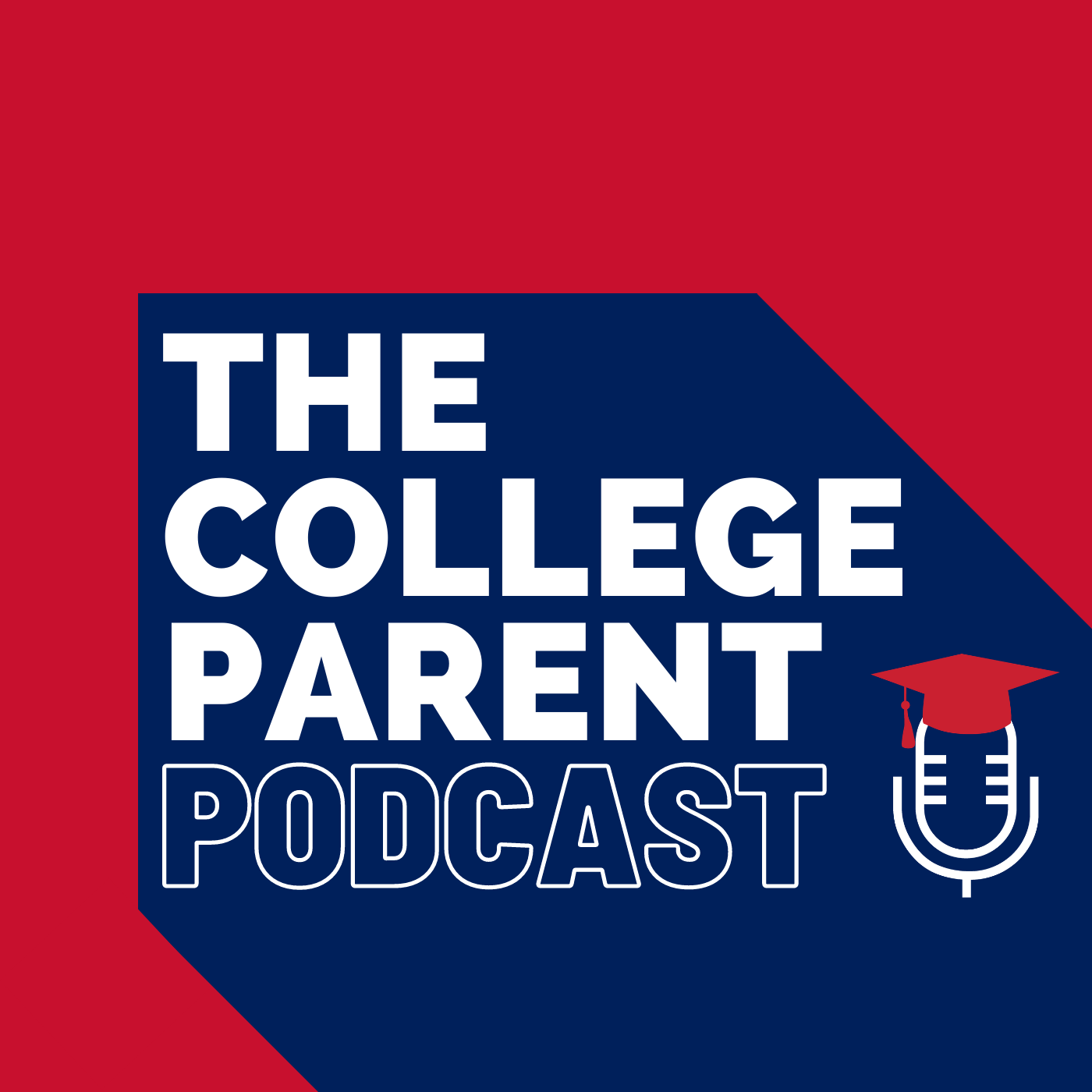
The Better Semester
Rob Danzman is a licensed therapist who's worked with college students and their parents for over two decades. He's written two books: The Insider's Guide to Parenting: How to Solve Messy Problems and Build a Great Family and The Insider's Guide to College: Evidence-Based Tips, Tricks, and Strategies to Win the Semester. The Better Semester is an extension of his work and is all about providing info to parents of college students. Each episode if full of insights, strategies and tactics - all super actionable advice to get your struggling college student solid again.
How much is too much parenting when your kiddo heads off to school? How can college students find help when they're struggling? How should medication be handled while they're at college? How can parents coordinate with the university?
All of these and more are covered weekly.
The Better Semester
Getting the Most Out of Summer
There's this pervasive, seductive myth of the endless summer among college students when spring semester finishes. Summer just feels long in the beginning, doesn't it? Three glorious months stretching out before your kiddo, promising unlimited possibilities. But here’s the harsh reality: it’s not. Without even an ounce of structure, without any guiding intent, those three months vanish—Poof! College students desperately need just enough planning, just enough forward-thinking, to avoid falling into the insidious trap of "I'll do it later." Because without even a little bit of foresight, without establishing some basic goals, later almost invariably becomes never. The days bleed into one another, and suddenly, it’s August, and nothing meaningful has been accomplished.
So, given this potential for drift, what should your college kiddo be focusing on? I have six absolutely must-have summer habits for college students. These are not suggestions; they are non-negotiables. They are thoroughly research-backed principles for well-being. And they are, unequivocally, absolutely protective for mental health. I’ve broken them down in today's episode and I call them the Six Pillars of a Satisfying Summer. Not a catchy title but I think you'll like hearing how students can get the most out of summer (no matter how much is left).
https://www.youtube.com/channel/motivatecounseling
https://motivatecounseling.com/
https://motivatecounseling.com
Hey everyone, and welcome back to the podcast. As Summer rolls around every year, without fail, my inbox gets absolutely swamped with the same urgent question from concerned parents: "What should my college student do over summer break?" It’s a perennial question, and it often comes bundled with a few common follow-ups: Should they pack their schedule with extra classes, squeezing in more credits? Should they simply kick back, relax, and have unadulterated fun, enjoying a much-needed break from the academic grind? Or should they dive into the workforce, getting a job to "build character" and gain some real-world experience?
And my consistent, perhaps surprising, answer to all these very valid questions? Yes. To all of it. But here’s the absolutely crucial, non-negotiable part that often gets missed: whatever they choose, it needs to be approached with both balance and purpose.
Summer, at first glance, seems like this magnificent, wide-open, blank canvas, stretching out before you with endless possibilities and seemingly infinite time. It’s an intoxicating illusion. But here’s the catch, and it’s a colossal one: when everything is possible, when there are no constraints or guiding principles, it’s incredibly easy to do… absolutely nothing. Those three months can vanish into a haze of aimless days and forgotten intentions.
I spend a significant portion of my time working with students, trying to convince them that life isn’t about picking just one lane and sticking to it rigidly. It’s about the art of intentionally balancing the myriad of things that truly matter for a well-rounded and fulfilling existence: your academic pursuits and intellectual growth, your professional development and work experience, your physical and mental health, your social connections and friendships, and yes—sometimes even remembering to call home and check in with your family. And summer? Summer, with its relative freedom from typical academic pressures, is the perfect, low-stakes laboratory to truly build and practice that delicate balance. It’s a chance to experiment with different schedules and priorities without the high-pressure consequences of a failing grade.
When students hit the fall semester, I can tell you from years of experience, the ones who truly thrive, who hit the ground running with energy and focus, are invariably the ones who used their summer strategically to set the table, so to speak. They’ve prepared themselves. They are not the ones who floated for three entire months, lost in a blur of binge-watching Netflix and mindlessly scrolling TikTok. Those students often return to campus feeling more drained than when they left, struggling to regain momentum.
So, for all the parents out there who are nodding along, here’s what you absolutely need to know—and perhaps more importantly, how you can genuinely help your college student have a summer that is both deeply restorative and incredibly productive. It's about empowering them, not micromanaging them.
Let’s first address the core issue: why college students often end up "wasting" their summer, and then, crucially, how we can proactively prevent it from happening.
There's this pervasive, almost seductive myth of endless time. Summer feels long, doesn't it? Or at least it feels like it should be long. Three glorious months stretching out before you, promising unlimited possibilities. But here’s the harsh reality: it’s not. Without even an ounce of structure, without any guiding intent, those three months vanish—Poof!—like a puff of smoke. Students desperately need just enough planning, just enough forward-thinking, to avoid falling into the insidious trap of "I'll do it later." Because without even a little bit of foresight, without establishing some basic goals, later almost invariably becomes never. The days bleed into one another, and suddenly, it’s August, and nothing meaningful has been accomplished.
So, given this potential for drift, what should they be focusing on? I have six absolutely must-have summer habits for college students. These are not suggestions; they are non-negotiables. They are thoroughly research-backed principles for well-being. And they are, unequivocally, absolutely protective for mental health. I’ve distilled them down and I call them the Six Pillars of a Satisfying Summer:
- Sleep: We are not talking about the sporadic, late-night, 3 AM crash cycle that often defines college life during the semester. We’re talking about consistent, regular, high-quality sleep. Getting to bed and waking up around the same time each day, allowing the body and brain to truly rest and reset. This is foundational.
- Nutrition: Real food, folks. This isn't just about avoiding the Freshman Fifteen. It's about fueling their bodies and brains for optimal function. We’re talking about balanced meals, not just surviving on iced coffee, energy bars, and whatever leftovers they can scrounge from the back of the fridge.
- Exercise: Move the body, boost the mind. It sounds so simple, almost cliché, but its effectiveness is profound. Whether it’s hitting the gym, going for a run, cycling, hiking, or even just dancing around their room—consistent physical activity is a potent antidote to stress and a powerful enhancer of mood and cognitive function.
- Outside Time: Sunlight and nature are not just pleasant; they are powerful mood and cognition improvers. Encourage them to get outdoors, even if it’s just for 20-30 minutes a day. A walk in the park, sitting on a porch, or even just having lunch outside can make a remarkable difference in their outlook and energy levels.
- Social Connection: We are wired for connection. Encourage healthy, meaningful interactions. This is about quality over quantity. It's about genuine conversations, shared experiences, and fostering true friendships, rather than simply scrolling through a feed of acquaintances on social media.
- Cognitive Stimulation: This pillar is about keeping the brain engaged and active, but not necessarily in an academic way. This could be reading for pleasure (not for a grade!), taking a light, enjoyable online class in something they're genuinely curious about, learning a new hobby or skill—like coding, playing an instrument, or cooking. The goal is to keep those cognitive wheels turning, preventing intellectual atrophy.
Here’s a critical point, something I emphasize repeatedly with parents and students: if your student is already struggling with anxiety, depression, or burnout, these six pillars are often the fastest, most effective, and most accessible ways to help them stabilize. They provide a vital framework for self-care that can make an immediate, tangible difference in their well-being. They are the bedrock upon which further healing or growth can be built.
Now, I want to be absolutely clear: the idea here is not to make summer more school. It’s not about turning their break into an academic pressure cooker. Instead, it’s about shifting the focus. Less academic grind, certainly, but more exploration, more self-directed learning, more personal growth. However, don’t let that intellectual engine stall completely. Encourage light classes, reading for pure pleasure (a novel, a biography, a self-help book), or engaging in creative projects that truly excite them to keep their minds engaged and active.
Fitness? It’s often significantly easier to prioritize and maintain a fitness routine in the summer. Better weather for outdoor activities, more flexible schedules, and fewer academic excuses. This is an ideal time to establish sustainable exercise habits that can carry into the busy fall semester.
Social life? Absolutely. It’s a vital part of development and well-being. But again, the emphasis should be on prioritizing quality over quantity. Help your student understand that true connection is about depth, about shared vulnerability and genuine presence, not just mindlessly scrolling through endless group chats or accumulating social media likes.
So, if those are the pillars, what’s the secret sauce, the overarching approach to ensuring a truly productive and satisfying summer? It’s all about equally attending to organization, planning, and motivation.
Let’s start with Organization. Summer doesn’t need to be scheduled down to the minute ro a rigid timetable that squashes spontaneity. But some level of structure, even light structure, is absolutely essential to prevent days from simply bleeding into one another and leading to wasted time. Even just one or two consistent anchor points—like regular work shifts, planned workouts with a friend, or regular family commitments like a shared meal or chore—can keep things on track and provide a rhythm to the week. A great, simple place to start with organization is with the bookends of the day: consistent bedtime and wake-up times. Maintaining a relatively steady sleep-wake cycle, even if it’s a bit later than during the semester, is a powerful organizational tool for the body and mind.
Next, Planning. Planning is simply the intentional act of deciding what matters to you and when you are going to commit to doing it. Encourage your student to sit down and set a few clear, achievable summer goals. These don't have to be monumental. Maybe it's establishing a consistent weekly fitness habit, like going for a run three times a week. Maybe it's a financial goal, like saving a thousand dollars from a summer job. Or perhaps it's a personal development goal, like reading three physical books for pleasure—yes, physical books still exist, and they offer a different kind of immersion! The act of setting these goals, even small ones, provides direction and a sense of purpose.
Finally, and perhaps most crucially, Motivation. This is where many students—and adults—get stuck. Motivation isn’t just about raw "willpower," a magical force you either have or don't have. It’s about brain chemistry. Bad sleep, poor nutrition, or too much instant gratification (hello, social media dopamine hits) can tank motivation fast.
Sometimes low motivation points to deeper issues—like trauma, ADHD medication misuse, or mental health struggles. If you notice this, summer is the time to get help, not to wait until fall implodes.
Summary: Key Takeaways for Parents
- Summer should balance rest, work, and growth.
- Students need light structure to avoid wasting summer.
- Six summer pillars (sleep, nutrition, exercise, outside time, social connection, cognitive stimulation) are critical for mental health.
- Organization and planning make the difference between a fulfilling summer and a wasted one.
- Motivation issues are often chemical, not character flaws.
Actionable Strategies Parents Can Implement
Empowering college students during their summer break involves thoughtful interaction and supportive encouragement, rather than directive control. Here’s how parents can be effective allies:
- Initiate the Conversation: "What are your summer aspirations?" Instead of dictating plans, begin by genuinely asking your student about their own hopes and goals for the summer. Approach these conversations with genuine curiosity and a desire to understand their perspective, rather than an agenda to control their choices. This fosters autonomy and open communication.
- Encourage Structure, Don't Control: "Let's design a flexible framework." Help your student brainstorm and design a light weekly routine that incorporates various elements: scheduled workouts, shifts at a part-time job or internship, planned social meetups, and dedicated time for hobbies or personal projects. The emphasis should be on them owning the design of this routine, with your role as a supportive guide.
- Promote Cognitive Stimulation: "Explore what excites you." Suggest a variety of enriching activities that can keep their minds engaged: enrolling in a summer class (online or in-person), delving into a reading list, learning a new skill (e.g., coding, an instrument, a language), or pursuing a passion project. Crucially, let them choose what resonates with their interests, making the learning experience enjoyable and self-driven.
- Support Healthy Habits: "Let's prioritize well-being together." Reiterate the profound importance of foundational healthy habits—consistent sleep patterns, balanced nutrition, and regular physical activity. Offer practical support, whether it's providing healthy food options, facilitating access to a gym membership, or even suggesting a shared family walk. Sometimes, the most significant help is removing barriers to good habits.
- Normalize Getting Help: "It's okay to ask for support." If you observe persistent signs of struggle—such as chronic low energy, elevated anxiety, social withdrawal, or changes in mood—gently but firmly encourage your student to seek professional help. This could involve reaching out to their college's counseling services (many offer summer support), connecting with local therapists, or exploring community mental health resources. Frame it as a sign of strength and self-care, not a weakness.
- Be a Thought Partner, Not a Manager: "What are your thoughts on this?" Your role shifts from directing to facilitating. Engage in thoughtful discussions, ask open-ended questions that encourage critical thinking, and offer different perspectives or potential consequences without imposing your will. The goal is to empower them to weigh their options and make their own informed choices, thereby building their decision-making skills and self-reliance.
It can be a challenging conversation to have with college students who are eager for a break, but as the saying goes, the fall semester is undeniably defined by the summer that precedes it. Encouraging them to make wise investments in their well-being, personal growth, and proactive planning now will undoubtedly lead to a more satisfying and successful return to campus life and the academic year ahead.
Summary: Key Takeaways for Parents to Foster a Productive Summer
For parents navigating the summer with their college-aged children, a balanced approach is key to transforming what could be a period of stagnation into one of growth and preparation.
- Summer is a critical period for balance: rest, work, and growth. This isn't just about lounging by the pool; it's about finding equilibrium between much-needed downtime, engaging in meaningful work or personal projects, and fostering intellectual and emotional development. A summer solely dedicated to one extreme is likely to be unfulfilling.
- Students benefit from light structure to avoid wasting summer. While the rigid schedules of college may be a distant memory, a complete absence of routine can lead to aimlessness. Gentle, self-imposed structure—whether it's regular workout times, consistent hours for a summer job, or planned social outings—provides an anchor that prevents the summer from simply drifting by.
- The "Six Summer Pillars" are fundamental for mental health. These pillars—adequate sleep, nutritious eating, consistent exercise, ample outside time, meaningful social connection, and cognitive stimulation—are not merely suggestions; they are critical components of psychological well-being. Neglecting any of these can contribute to feelings of lethargy, anxiety, or disconnection.
- Effective organization and proactive planning differentiate a fulfilling summer from a wasted one. The difference between a summer that feels purposeful and one that feels squandered often boils down to how well a student plans and organizes their time and activities. Encouraging them to set realistic goals and outline steps to achieve them can make a significant impact.
- It's vital to remember that motivation issues are often chemical, not character flaws. When a student seems unmotivated, it's easy for parents to jump to conclusions about laziness or lack of discipline. However, neurochemical imbalances, stress, or undiagnosed conditions like depression or anxiety are frequently at the root of such struggles, requiring empathy and support rather than judgment.
That’s it for today. Thanks so much for listening. If you found this helpful and want even more, check out my blog at motivatecounseling.com, sign up for my newsletter, and get my books on Amazon - just search for my name, Rob Danzman.
Podcasts we love
Check out these other fine podcasts recommended by us, not an algorithm.

College Parent Central Podcast
Vicki Nelson, Lynn Abrahams, Elizabeth Hamblet
The College Parent Podcast
Belmont Residence Life
Huberman Lab
Scicomm Media
Hidden Brain
Hidden Brain, Shankar Vedantam
Nutrition Facts with Dr. Greger
Michael Greger, M.D. FACLM
Lenny's Podcast: Product | Career | Growth
Lenny Rachitsky
Stanford Psychology Podcast
Stanford Psychology
